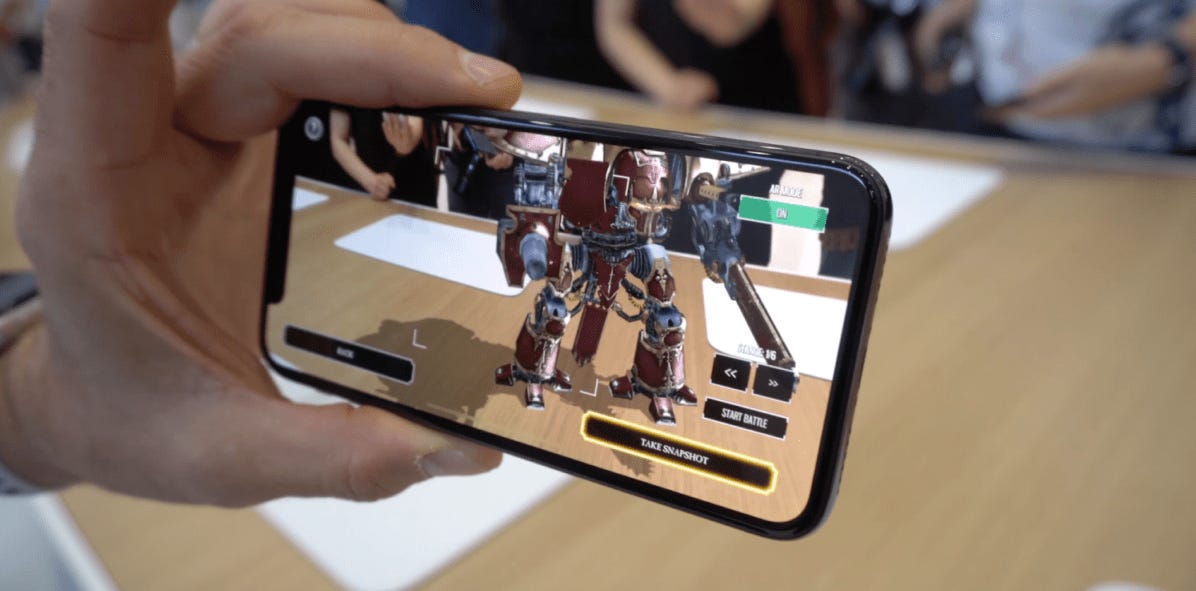Happy Sunday! I’ve got a lot of web3 ideas right now so it’s another edition of Web3 Things! As always, I’m thrilled and honored to have you as readers and truly appreciate your thoughts and feedback 🙏. Each edition will contain a dive into 3 rabbit holes I’ve found myself going down recently. Subscribe to get each week’s newsletter straight to your inbox and if you enjoy it, please share (I suck at self-promotion so can use your help)! This past week I’ve been thinking a lot about:
Pokemon Go for NFTs
Credit Score for Crypto Wallets
r/explainlikeimfivecrypto Subreddit
1. Pokemon Go for NFTs
When Niantic launched their AR game, Pokemon Go in 2016, it became a global viral success. The mobile game leveraged phone GPS to find, capture, and battle Pokemon. By the end of 2016, it had already garnered more than 500 million downloads. By early 2019, the game had over a billion global downloads and in 2020, it had generated over $6B in revenue despite being a free-to-play game. At its peak, there were over 380 million people playing which represented 1 out of every 20 people on the planet! While the rise happened quickly, the usage dropped off rapidly as well because there wasn’t a ton of actual “game” and continued features after you did the basics. They were, however, able to capitalize on simplicity and accessibility which helped make it such a viral (and lucrative) success.
Over the past year, interest in NFTs has boomed going from a steady state of ~20-30k unique wallets that had bought or sold an NFT from 2017 until mid-2021 to a peak of nearly 600k wallets that transacted in NFTs during Q3 2021. Since that timeframe, the number has dropped off again but is remains well above the historic averages. On top of NFTs, we have seen the rise of P2E (play-to-earn) gaming as well as various forms of gaming in the metaverse. Combining these concepts and adding an IRL component, you could create mobile augmented reality P2E games that leverage a phone’s GPS and allow users to hunt for and earn various NFTs through game play. You could also incorporate the concept of token-gated access to add richness to the experience and create a sense of exclusivity and FOMO. The AR game could be a component of a larger metaverse or digital game where capturing NFTs in the AR experience could unlock new play modes and levels, or give you entry into certain digital clubs or communities. Given big brands’ interest in NFTs and the metaverse, partnering with a company that has significant IP, like Pokemon Go did, could help ensure some early virality.
2. Credit Score for Crypto Wallets
Building credit and trying to maintain a high credit score is a part of being an adult in the United States. Credit scores are a comparative estimate of an individual's creditworthiness and are used primarily by lenders to determine the riskiness of lending that person money. In the 1800s, local merchant associations would collect credit information on commercial borrowers and sell it to local banks. Two of the most prominent companies that began to create alphanumeric scores to evaluate business creditworthiness were R.G. Dun & Co and the Bradstreet Company who eventually merged in 1933 and are today still a public company under the name Dun & Bradstreet. They continue to provide a range of products and services for risk and financial analysis as well as maintain a database of over 400 million global business records. In the 1950s banks widely adopted computerized credit scores and the 70s and 80s saw massive consolidation among credit rating agencies and regulations to prevent unfair practices and discrimination with the 1970 Fair Credit Reporting Act (FCRA) and 1974 Equal Credit Opportunity Act (ECOA). In 1989, the FICO score was introduced based on consumer credit files of the three national credit bureaus: Experian, Equifax, and TransUnion, and became the de facto score after 1995 when Fannie Mae and Freddie Mac used the FICO score for all new mortgage applications.
A credit score pulls in a bunch of factors such as payment history, debt burden, length of credit history, types of credit uses, and number of credit inquiries to spit out a number between 300-850 which helps lenders underwrite risk. In the crypto world, your wallet(s) is the equivalent of your bank accounts, credit cards, and all other financial transactions. A similar model to the FICO score could be applied to wallets to give them a trust score and help consumers fight against fraud, phishing, and other malicious activities. You’d want to know the age of the wallet, transaction history (including which contracts and wallets they’ve interacted with and how trustworthy those were), have they ever used a mixer, and more. Given everything on a blockchain is public information, you wouldn’t need permission or to go through any organizations to get access to this data. The score would be a secret sauce calculation and could be published to a blockchain and verified by validator nodes so that you could see trust history of each wallet over time. This score could be used by dApps, DAOs, and other entities to determine which wallets are allowed to connect and transact and which are not. Since age of wallet would be a factor, it would discourage people for continually creating new wallets and engaging in malicious or fraudulent activities and encourage good behavior over time, just like consumer credit scores.
3. r/explainlikeimfivecrypto Subreddit
Subreddits are a pretty interesting gauge of popular subcultures and rising trends among the masses. There are an astounding 2.8m individual subreddits covering pretty much every topic you could imagine (and many more that you probably couldn’t 🤣). The largest subreddit today is r/funny which has over 40 million members. Another top subreddit is r/explainlikeimfive which currently ranks at #24 among all subreddits and has over 20 million members. This subreddit is a forum dedicated to explaining concepts in incredibly simplistic terms for the layperson. Topics range from history to economics to math to the truly random stuff such as “How is a cameraman at a sports event able to track a fast moving ball with such a great focus on it?” One of my favorites recently was the question “What made us settle on cow’s milk and chicken eggs as our standard milk/egg?” I honestly didn’t know and get a kick out learning random knowledge like this.
Currently, one of the largest challenges in the web3/crypto space is that most of the concepts are incredibly complex, very developer focused, and involve an entirely new language and vocabulary. There are dozens of learning resources, communities, DAOs, and more but figuring out where to go to learn the basics and stay up to date with all of the new developments is a task unto itself. Just Google “web3 beginner resources” and try finding useful stuff there! Since Reddit already has over 430 million monthly active users, creating an r/explainlikeimfivecrypto subreddit that explains web3 concepts like the audience was five could immediately take off and become the go-to place for people to ask basic/beginner questions or even have more advanced topics explained in simple terms. Once you build up a substantial audience here, there will be tons of learnings around what people want/are interested in most and ways to capitalize on those off platform.
That’s all for today! If you have thoughts, comments, or want to get in touch, find me on Twitter at @ezelby and if you enjoyed this, please share with a friend or two! If you want more web3 content, let me know that too!
~ Elaine






I like the NFT-fuelled Pokemon Go idea, hunting for POAPs in the real world instead of at conferences sounds fun.
I think the credit score idea would be more valuable if applied to smart contracts, as a lot of money is lost by people being tricked into connecting to malicious ones.
For the last idea, I am actually writing a blog which is similar to this (https://cryptoprimitives.substack.com) but it is on substack instead of reddit. Any feedback would be much appreciated!